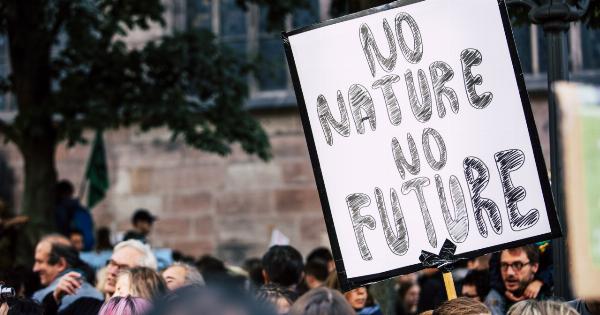In recent years, the spread of conspiracy theories has become increasingly prevalent in society.
Whether it’s the belief that the moon landing was faked or that powerful forces control the world, conspiracy theories can be found in almost every corner of the internet. While some of these theories may seem outlandish or even absurd to many, they continue to gain traction and attract a significant number of followers.
So, what is it that draws people to believe in these often far-fetched explanations of world events? The answer may lie in the psychology behind conspiracy beliefs.
Motivations for believing in conspiracy theories
When examining the psychology of conspiracy theories, researchers have identified several key motivations that may lead individuals to embrace these beliefs. The following are some of the most prominent factors:.
1. Need for control
Conspiracy theories can provide a sense of control and certainty in a chaotic or unpredictable world.
Believing in hidden forces or powerful organizations can help individuals feel like they understand the world better and have some control over their lives.
2. Cognitive biases
Human beings are prone to various cognitive biases, such as confirmation bias or the tendency to seek out information that confirms pre-existing beliefs.
Conspiracy theories often exploit these biases by presenting evidence that appears to support the theory while ignoring or dismissing conflicting information.
3. Distrust in authorities
Many conspiracy theories involve a fundamental distrust in authoritative institutions or figures, such as governments, the media, or science.
This distrust might stem from past experiences of deception or a perception that these authorities cannot be trusted due to their own hidden agendas.
4. Need for uniqueness
Believing in conspiracy theories can also fulfill an individual’s need to feel special or unique.
By subscribing to an alternative explanation of events, one can perceive themselves as part of a select group of people who possess secret knowledge or insights.
5. Cognitive dissonance
Conspiracy theories can help individuals alleviate cognitive dissonance by providing a simple and coherent explanation for complex or confusing events.
This can be particularly appealing when faced with situations that challenge our existing beliefs or values.
The role of psychological factors in conspiratorial thinking
Beyond these motivations, several psychological factors can contribute to an individual’s propensity for belief in conspiracy theories. These factors include:.
1. Uncertainty and anxiety
During times of uncertainty or personal insecurity, people may be more inclined to embrace conspiracy theories.
The need for explanations and a desire to find someone or something to blame can be heightened when individuals feel anxious or uncertain about their own lives or the world around them.
2. Pattern-seeking
Humans are innate pattern-seekers, always looking for meaning and connections in a chaotic and complex world. Conspiracy theories often offer simple and easily understandable narratives that connect seemingly unrelated events or phenomena.
3. Belief in grand narratives
Conspiracy theories sometimes tap into individuals’ desire for grand narratives or overarching explanations for how the world works.
These complex explanations can satisfy a need for meaning and purpose, providing a sense of order in an otherwise chaotic world.
4. Group identity
Believing in conspiracy theories can foster a sense of group identity and belonging.
Conspiracy theorists often form online communities or social networks where they can share and discuss their beliefs with like-minded individuals, reinforcing their convictions and providing a sense of camaraderie.
The dangers of conspiracy beliefs
While belief in conspiracy theories may seem harmless to some, it is important to recognize the potential dangers associated with these beliefs.
1. Undermining trust in institutions
Widespread belief in conspiracy theories can erode trust in important institutions and authorities, which can have negative consequences for society as a whole.
When people stop trusting the government, the media, or science, it becomes more challenging to address real societal issues or make evidence-based decisions.
2. Promoting misinformation and disinformation
Conspiracy theories often involve the spread of misinformation and disinformation. This can lead to a distortion of truth and prevent people from making informed decisions based on reliable information.
3. Dividing communities
In some cases, belief in conspiracy theories can lead to the creation of divisive “us vs. them” mentalities.
When people subscribe to alternative explanations of events, it can create a divide between those who believe in the conspiracy and those who do not, causing social tensions and conflicts.
4. Harm to individuals
Believing in conspiracy theories can also have personal consequences for individuals. It can lead to increased stress, paranoia, or a loss of trust in interpersonal relationships.
In extreme cases, conspiracy beliefs can contribute to radicalization or violent actions.
Overcoming conspiracy beliefs
Given the complex factors that contribute to belief in conspiracy theories, overcoming these beliefs can be challenging. However, there are several strategies that individuals and society can employ to address this issue:.
1. Education and critical thinking
Promoting critical thinking skills and educating individuals about the methods used to identify reliable information can help people evaluate conspiracy theories more objectively.
Encouraging individuals to question their own beliefs and consider alternative perspectives is crucial.
2. Addressing underlying insecurities
Understanding the underlying emotional and psychological motivations that drive conspiracy beliefs can help individuals address their insecurities in healthier ways.
Providing avenues for emotional support and a sense of belonging can reduce the appeal of conspiracy theories.
3. Building trust in institutions
Rebuilding trust in institutions is essential to combat the spread of conspiracy theories. This can be achieved through transparent communication, accountability, and efforts to bridge the gap between authority figures and the general public.
4. Media literacy and regulation
Improving media literacy and regulating online platforms can help curb the spread of misinformation and disinformation, reducing the influence of conspiracy theories.
Fact-checking initiatives, media literacy programs, and responsible journalism can all contribute to a more informed society.
Overall, understanding the psychology behind belief in conspiracy theories is crucial for addressing this growing phenomenon.
By exploring the motivations, cognitive biases, and psychological factors that contribute to these beliefs, we can develop effective strategies to mitigate the influence of conspiracy theories and promote critical thinking in society.






























